
The Enigmatic Vastness of the Empty Quarter Desert
The Empty Quarter Desert, also known as Rub' al Khali, is the largest continuous sand desert in the world. Spanning across Saudi Arabia, Oman, Yemen, and the UAE, it covers a staggering area of 650,000 square kilometers. This desert is a marvel of nature, with endless dunes reaching heights up to 250 meters. The desert's golden sands create a mesmerizing landscape that seems to stretch infinitely, offering a unique and awe-inspiring experience for visitors. The Empty Quarter Desert holds a deep sense of mystery and history. It has been part of ancient trade routes and holds tales of lost cities and hidden treasures. The vastness of the desert provides a sense of serene isolation, perfect for those looking to escape the hustle and bustle of city life. Visitors can explore the desert on guided tours, often in 4x4 vehicles or on camelback, giving them a taste of traditional Bedouin life. The desert is also home to unique flora and fauna adapted to its harsh conditions, adding another layer of interest for nature enthusiasts. One of the highlights of visiting the Empty Quarter Desert is experiencing the stunning night sky. Far from city lights, the desert offers some of the clearest and most beautiful stargazing opportunities. The silence and tranquility of the desert at night create a magical atmosphere that is hard to find anywhere else. Whether you are an adventurer, a history buff, or someone seeking peace and solitude, the Empty Quarter Desert promises an unforgettable journey.
Local tips in Empty Quarter Desert
- Visit during the cooler months between October and April to avoid the extreme heat.
- Join a guided tour for a safe and informative experience.
- Pack plenty of water and sun protection, including sunscreen, hats, and sunglasses.
- Consider staying overnight to experience the stunning desert night sky.
- Respect local customs and dress modestly.
The Enigmatic Vastness of the Empty Quarter Desert
The Empty Quarter Desert, also known as Rub' al Khali, is the largest continuous sand desert in the world. Spanning across Saudi Arabia, Oman, Yemen, and the UAE, it covers a staggering area of 650,000 square kilometers. This desert is a marvel of nature, with endless dunes reaching heights up to 250 meters. The desert's golden sands create a mesmerizing landscape that seems to stretch infinitely, offering a unique and awe-inspiring experience for visitors. The Empty Quarter Desert holds a deep sense of mystery and history. It has been part of ancient trade routes and holds tales of lost cities and hidden treasures. The vastness of the desert provides a sense of serene isolation, perfect for those looking to escape the hustle and bustle of city life. Visitors can explore the desert on guided tours, often in 4x4 vehicles or on camelback, giving them a taste of traditional Bedouin life. The desert is also home to unique flora and fauna adapted to its harsh conditions, adding another layer of interest for nature enthusiasts. One of the highlights of visiting the Empty Quarter Desert is experiencing the stunning night sky. Far from city lights, the desert offers some of the clearest and most beautiful stargazing opportunities. The silence and tranquility of the desert at night create a magical atmosphere that is hard to find anywhere else. Whether you are an adventurer, a history buff, or someone seeking peace and solitude, the Empty Quarter Desert promises an unforgettable journey.
When is the best time to go to Empty Quarter Desert?
Iconic landmarks you can’t miss
Red Sand Dunes
Experience the breathtaking beauty and adventure of the Red Sand Dunes, a must-visit destination in Saudi Arabia, where nature creates unforgettable memories.
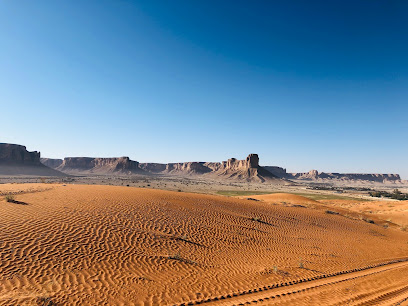
Empty Quarter
Discover the vast and mesmerizing landscapes of the Empty Quarter, the world's largest sand desert, where adventure and tranquility meet.
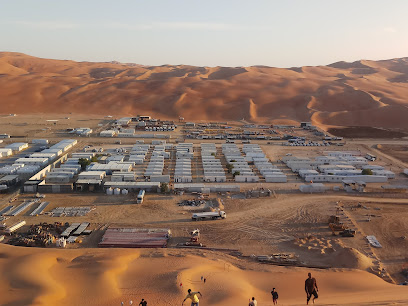
Unmissable attractions to see
King Khalid Royal Reserve
Experience the beauty of nature at King Khalid Royal Reserve, a stunning nature preserve and national park near Riyadh, perfect for outdoor adventures.
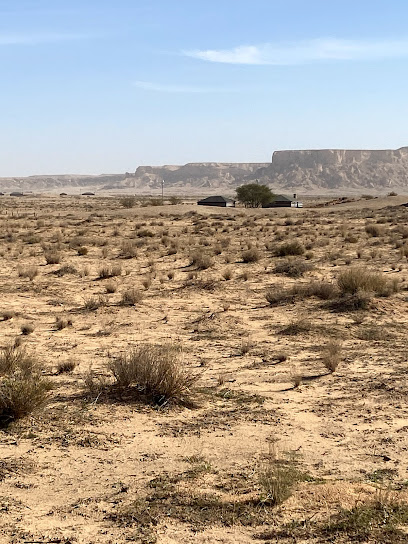
Moreeb Dune
Explore Moreeb Dune in Abu Dhabi, a breathtaking natural wonder perfect for adventure, stunning views, and serene desert landscapes.
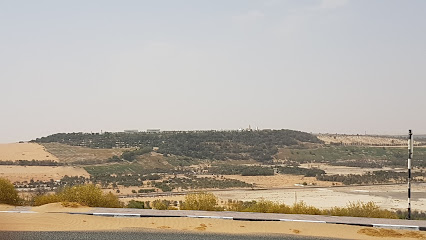
Red Sand Dunes
Explore the breathtaking Red Sand Dunes, a natural wonder offering adventure, stunning landscapes, and cultural experiences in Saudi Arabia.
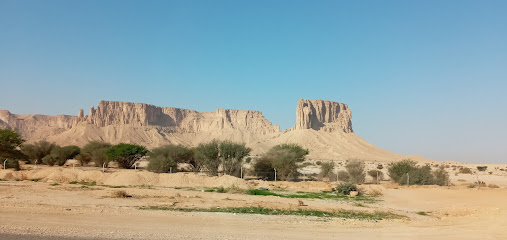
Empty Quarter
Discover the vast beauty of the Empty Quarter, the largest sand desert in the world, where nature and adventure await in every shifting dune.
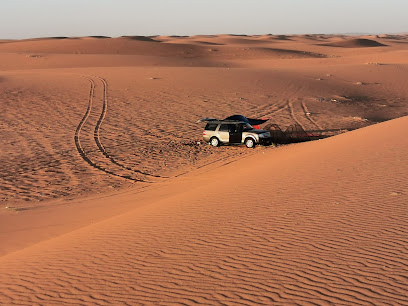
'Uruq Bani Ma'arid
Discover the breathtaking beauty and diverse wildlife of 'Uruq Bani Ma'arid, a national reserve in Saudi Arabia perfect for nature lovers and adventure seekers.
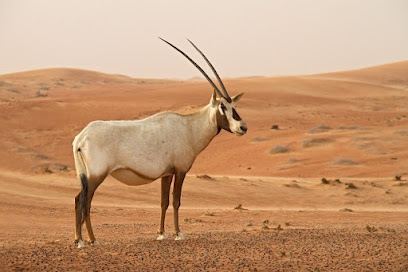
Upper Oasis Tent
Experience the serene beauty and traditional charm of the Upper Oasis Tent in Shaybah, Saudi Arabia, a unique blend of culture and adventure.
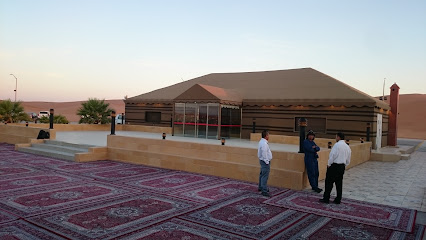
Rub Al Khali Desert Safari by Beautiful Salalah Tours
Experience the enchanting Rub Al Khali Desert, a vast landscape of shifting sands, rich culture, and breathtaking sunsets, perfect for the adventurous traveler.
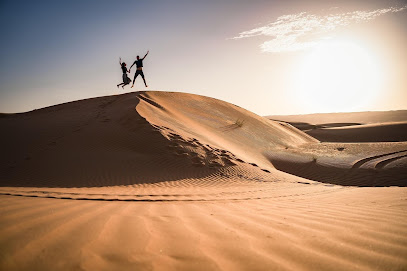
Rub Al Khali Sand Dunes
Discover the enchanting Rub Al Khali Sand Dunes in Oman, where golden sands and breathtaking landscapes await your exploration.
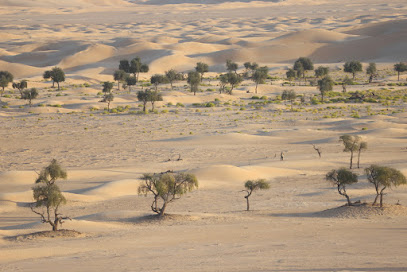
Essential places to dine
Don Ruben's Mexican Restaurant
Experience authentic Mexican cuisine at Don Ruben's Restaurant in Riyadh – where every meal is a celebration of flavor.
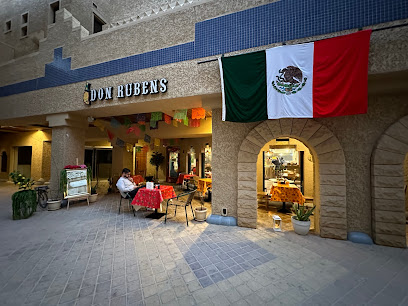
Empty Quarter
Explore the breathtaking expanses of the Empty Quarter, where golden dunes meet endless skies in one of nature's most stunning deserts.
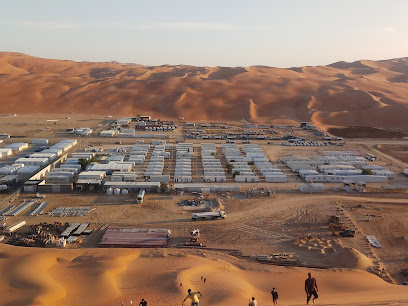
Arab Cooking Restaurant
Experience authentic Middle Eastern cuisine at Arab Cooking Restaurant in Al Jubail – where every dish tells a story.
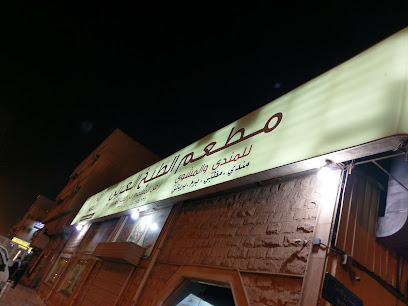
Village Family Restaurant
Experience the vibrant flavors of Pakistan and India at Village Family Restaurant in Al Mubarraz – where every meal tells a story.
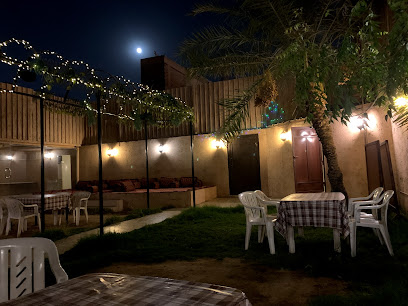
Al Diwan Lebanese Restaurant
Experience authentic Lebanese cuisine in Al Jubail at Al Diwan Restaurant – where tradition meets flavor.
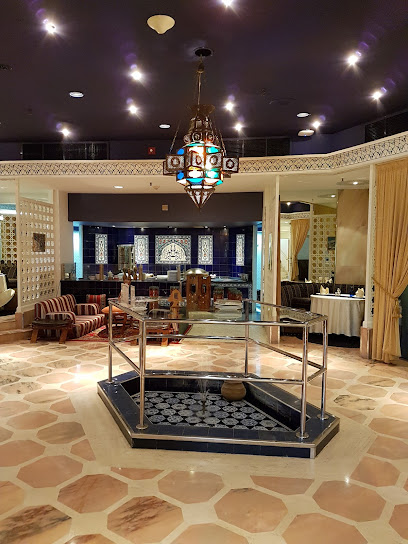
Markets, malls and hidden boutiques
Red Sea Mall
Experience the best of shopping, dining, and entertainment at Red Sea Mall in Jeddah, a vibrant destination for every tourist.
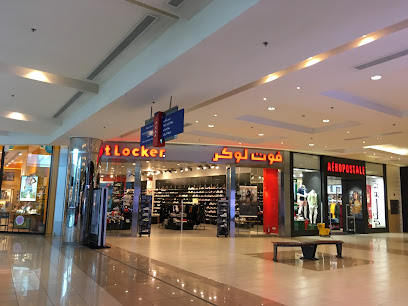
Cenomi Al Nakheel Mall
Discover a world of shopping and entertainment at Cenomi Al Nakheel Mall in Riyadh, where style meets convenience in a lively atmosphere.
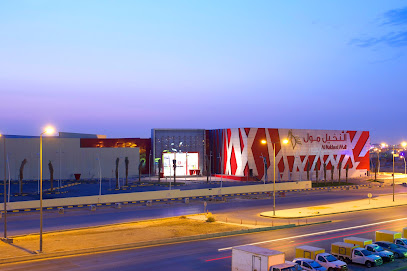
Cenomi Mall of Arabia
Experience the ultimate shopping adventure at Cenomi Mall of Arabia, where luxury meets local culture in the heart of Jeddah.
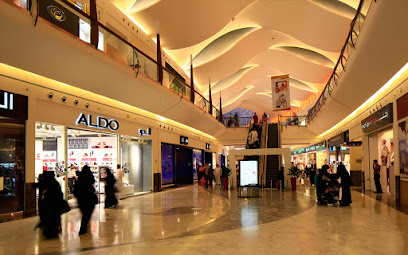
Al Rashid Mall
Discover Al Rashid Mall in Al Khobar: A shopping haven with diverse retail, delightful dining, and family-friendly entertainment.
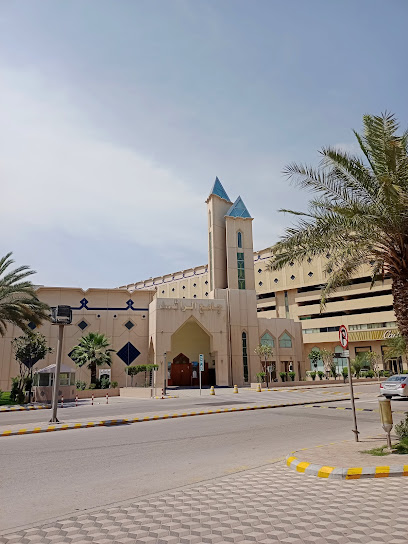
Granada Mall
Discover shopping bliss at Granada Mall in Riyadh, where luxury meets variety and entertainment awaits around every corner.
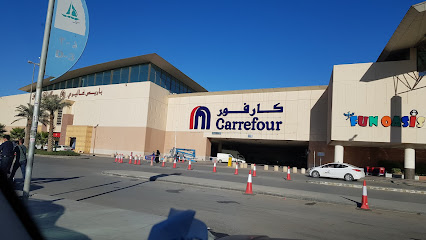
Panorama Mall
Discover the ultimate shopping and entertainment experience at Panorama Mall, where tradition meets modernity in the heart of Riyadh.
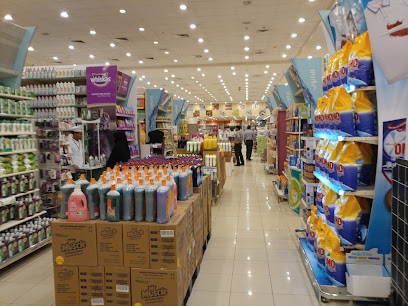
Riyadh Park
Experience the ultimate shopping and entertainment destination at Riyadh Park, where modern lifestyle meets rich cultural experiences.
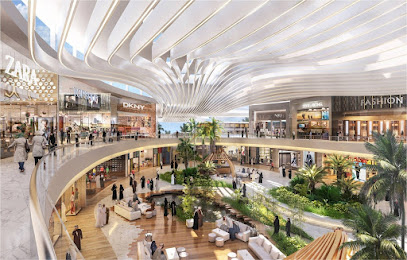
Flamingo Mall
Discover the vibrant shopping scene at Flamingo Mall in Jeddah, where modern retail meets delightful dining and entertainment experiences.
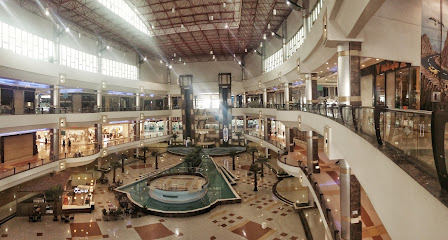
Al-Rashid Mega Mall
Explore Al-Rashid Mega Mall in Madinah: a vibrant shopping destination with diverse retail, dining, and entertainment options for everyone.
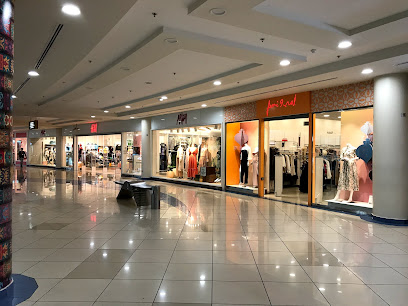
Qaisariya Al-Ahsa Souq
Discover the vibrant Qaisariya Al-Ahsa Souq, a cultural gem in Al Hofuf, brimming with local crafts, delicious cuisine, and rich traditions.
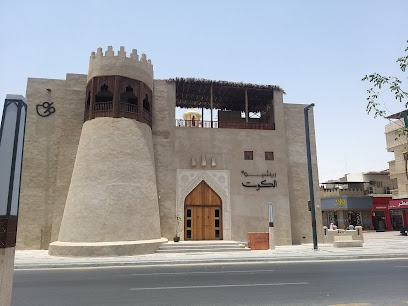
Al Rashid Mall JAZAN
Explore Al Rashid Mall Jazan for a unique shopping experience featuring diverse stores, delicious dining, and family-friendly entertainment options.
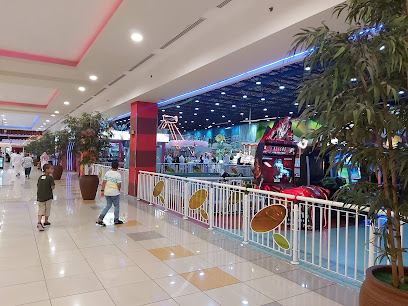
King Khalid Royal Reserve
Experience the natural beauty of King Khalid Royal Reserve, a serene escape in Riyadh's al-Thumamah region, ideal for nature lovers and outdoor enthusiasts.
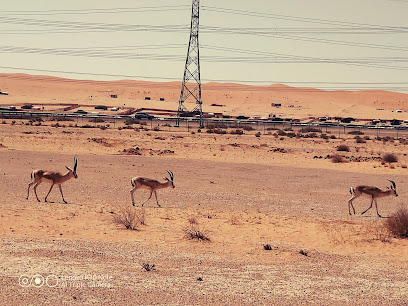
Cenomi Al Ahsa Mall
Discover the ultimate shopping experience at Cenomi Al Ahsa Mall, where fashion, food, and fun come together in Al Hofuf.
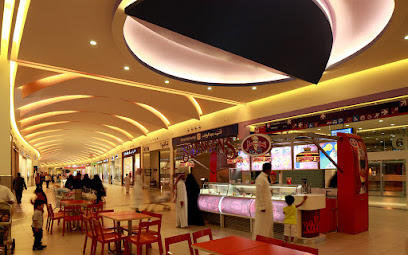
Kadi Mall | كادي مول
Explore Kadi Mall in Jazan for a dynamic shopping experience with diverse stores, delicious dining, and fun entertainment options.
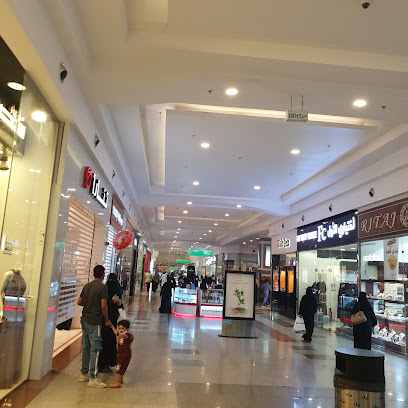
Souk Al Zal
Discover the authentic charm of Souk Al Zal, a vibrant market in Riyadh, where tradition meets modernity in a colorful tapestry of culture.
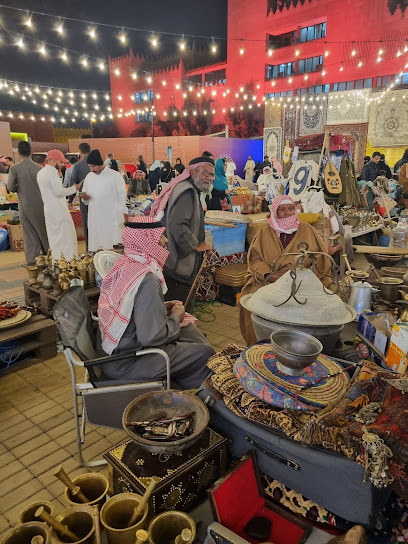
Essential bars & hidden hideouts
King Khalid Royal Reserve
Explore the serene beauty of King Khalid Royal Reserve, a breathtaking nature preserve near Riyadh, perfect for outdoor adventures and wildlife encounters.
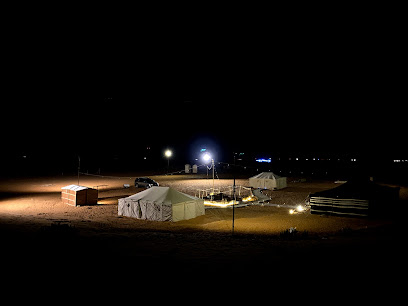
The Oberoi, Madina ,
Discover unparalleled luxury and exquisite dining at The Oberoi, Madina, in the heart of the holy city.
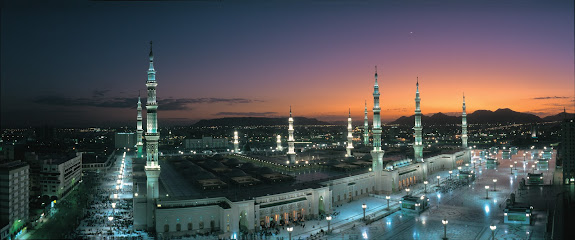
Mövenpick Bahrain
Discover the ultimate in luxury and comfort at Mövenpick Bahrain, where traditional hospitality meets modern elegance in Muharraq.

Rixos Premium Saadiyat Island
Experience the epitome of luxury and relaxation at Rixos Premium Saadiyat Island, where pristine beaches meet exceptional hospitality.

Radisson Blu Hotel, Riyadh Qurtuba
Discover luxury and comfort at Radisson Blu Hotel, Riyadh Qurtuba – your perfect retreat in the heart of Saudi Arabia.
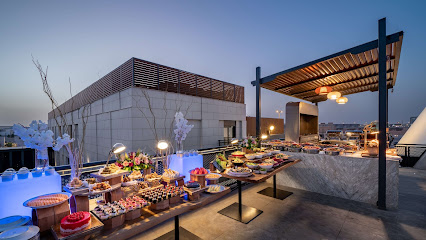
Qasr Al Sarab Desert Resort by Anantara
Experience the ultimate desert escape at Qasr Al Sarab Desert Resort by Anantara, where luxury meets the mesmerizing beauty of the Liwa Desert.
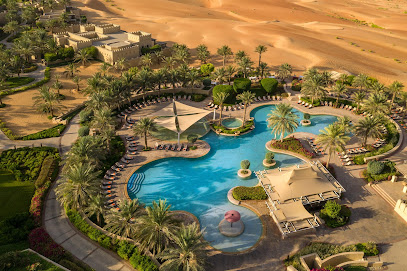
منتجع وشاطيء تمارا نصف القمر بالخبر
Experience the ultimate beachside relaxation at Tamara Beach Resort, a luxurious retreat in Half Moon Bay, Dhahran, Saudi Arabia.
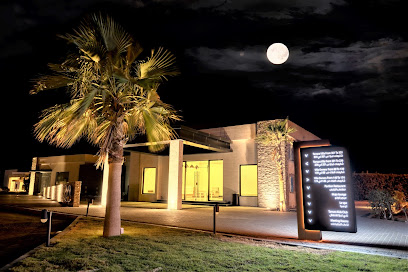
Empty Quarter
Explore the breathtaking landscapes of the Empty Quarter, the world's largest sand desert, rich in culture and natural beauty.
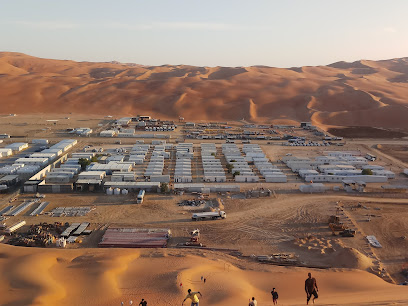
Best Western Plus Fursan Hotel
Discover unmatched comfort and convenience at Best Western Plus Fursan Hotel, your ideal stay in the heart of Riyadh.
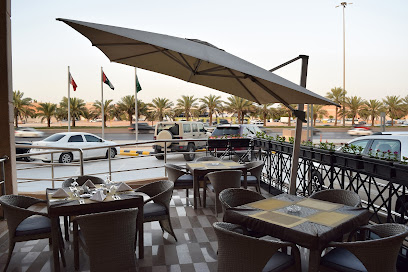
TWILIGHT Bar and Lounge توايلايت بار اند لاونج
Experience the vibrant atmosphere and delicious grilled delights at TWILIGHT Bar and Lounge in Jeddah, where nightlife meets culinary excellence.
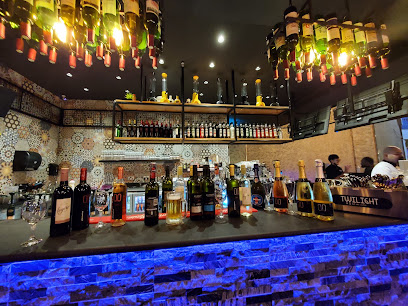
Bagatelle Riyadh
Experience the luxury of French cuisine at Bagatelle Riyadh, where Mediterranean flavors meet sophisticated dining in an elegant setting.
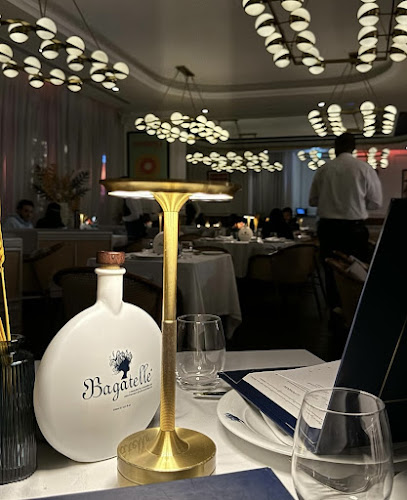
The Boba Bar
Experience the colorful and refreshing bubble tea delights at The Boba Bar in Jeddah, where creativity and flavor meet in every sip.
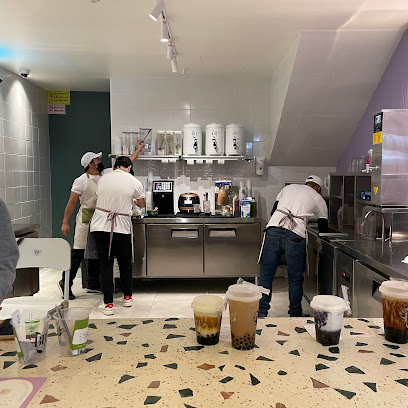
365 Adventures - Qatar
Discover the essence of adventure in Qatar with 365 Adventures, your gateway to exhilarating experiences and unforgettable memories.
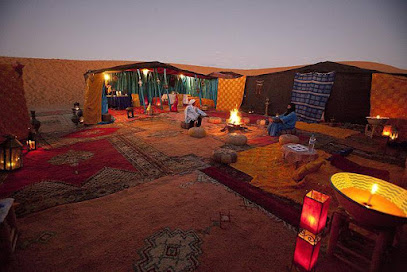
كاريبو كوفي
Discover the delightful flavors of كاريبو كوفي, a cozy café in Riyadh, perfect for coffee lovers and culinary enthusiasts alike.
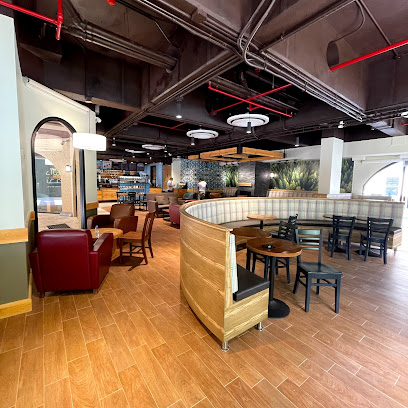
Local Phrases about Empty Quarter Desert
-
- HelloMarhaba
[mar-ha-ba] - GoodbyeMa'a as-salama
[ma-a as-sa-la-ma] - YesNa'am
[na-am] - NoLa
[la] - Please/You're welcomeMin fadlak
[min fad-lak] - Thank youShukran
[shuk-ran] - Excuse me/SorryAasif
[aa-sif] - How are you?Kif halak?
[kif ha-lak] - Fine. And you?Tamam. Wa ant?
[ta-mam. wa ant] - Do you speak English?Tatakallam al-ingliziya?
[ta-ta-kal-lam al-ing-li-zi-ya] - I don't understandAna la afham
[a-na la af-ham]
- HelloMarhaba
-
- I'd like to see the menu, pleaseAureed an ara al-qaima, min fadlak
[au-reed an a-ra al-ka-i-ma, min fad-lak] - I don't eat meatAna la aakul lahman
[a-na la aa-kul la-ham-an] - Cheers!Fi sahetak!
[fi sa-he-tak] - I would like to pay, pleaseAureed an adfa, min fadlak
[au-reed an ad-fa, min fad-lak]
- I'd like to see the menu, pleaseAureed an ara al-qaima, min fadlak
-
- Help!Musa'ada!
[mu-sa-a-da] - Go away!Irhal!
[ir-hal] - Call the Police!Ittasil bil-shurta!
[it-ta-sil bil-shur-ta] - Call a doctor!Ittasil bil-tabib!
[it-ta-sil bil-ta-bib] - I'm lostTalatutu
[ta-la-tu-tu] - I'm illAna mareed
[a-na ma-reed]
- Help!Musa'ada!
-
- I'd like to buy...Aureed an ashtari...
[au-reed an ash-ta-ri] - I'm just lookingAna faqat atadabbar
[a-na fa-qat a-tad-ab-bar] - How much is it?Kam thamanuh?
[kam tha-ma-nuh] - That's too expensiveHadha ghalin jiddan
[had-ha gha-lin jid-dan] - Can you lower the price?Hal yomkinuk tanqis althaman?
[hal yom-ki-nuk tan-qis al-tha-man]
- I'd like to buy...Aureed an ashtari...
-
- What time is it?Kam alwaqt?
[kam al-wa-qt] - It's one o'clockWaahid
[wa-a-hid] - Half past (10)Nisf
[nisf] - MorningSabaah
[sa-baah] - AfternoonDuhur
[du-hur] - EveningMasa
[ma-sa] - YesterdayAms
[ams] - TodayAl-yawm
[al-yawm] - TomorrowGhadan
[gha-dan] - 1Wahid
[wa-hid] - 2Itnan
[it-nan] - 3Thalatha
[tha-la-tha] - 4Arbaa
[ar-baa] - 5Khamsa
[kham-sa] - 6Sitta
[sit-ta] - 7Saba
[sa-ba] - 8Thamania
[tha-ma-ni-a] - 9Tisaa
[ti-saa] - 10Ashara
[a-sha-ra]
- What time is it?Kam alwaqt?
-
- Where's a/the...?Ayna...
[ay-na] - What's the address?Ma huwa al'adresse?
[ma hu-wa al-ad-res-se] - Can you show me (on the map)?Hal tasta'ti sharaha li?
[hal tas-ta-ti sha-ra-ha li] - When's the next (bus)?Mata sayakun alqadim?
[ma-ta sa-ya-kun al-qa-dim] - A ticket (to ....)Tadhkirah (ila ....)
[tadh-ki-rah (il-la)]
- Where's a/the...?Ayna...
History of Empty Quarter Desert
-
The Empty Quarter, also known as Rub' al Khali, was once a crucial part of the ancient incense trade routes. Caravans carrying precious frankincense, myrrh, and other goods traversed this vast desert, connecting the Arabian Peninsula to the Mediterranean and beyond. These routes facilitated not just commerce, but also cultural exchanges between ancient civilizations.
-
The legend of Ubar, often referred to as the 'Atlantis of the Sands,' has captivated explorers and historians alike. Believed to be a wealthy city that vanished under the sands, Ubar was rediscovered in the early 1990s through satellite imagery and archaeological expeditions. The ruins, located on the edge of the Empty Quarter, offer a glimpse into a once-thriving hub of trade and culture.
-
The nomadic Bedouin tribes have long called the Empty Quarter home. Their way of life, characterized by camel herding, traditional music, and poetry, has been shaped by the harsh desert environment. Bedouins have developed intricate knowledge of the land, including the location of rare water sources and the best routes for traversing the vast dunes.
-
The discovery of oil in the mid-20th century transformed the Empty Quarter and the entire Arabian Peninsula. The exploration for oil began in the 1930s, and by the 1950s, significant reserves were found. This discovery brought unprecedented wealth and modernization to Saudi Arabia, altering the landscape of the desert with pipelines and drilling rigs.
-
In recent decades, the Empty Quarter has attracted adventurers and researchers interested in its unique environment and history. Modern expeditions often utilize advanced technology, such as satellite imagery and GPS, to explore the desert's remote regions. These journeys continue to uncover new insights about the area’s geology, climate, and ancient human activities.
Empty Quarter Desert Essentials
-
The Empty Quarter Desert, also known as Rub' al Khali, is located in the southeastern part of Saudi Arabia. The nearest international airport is King Fahd International Airport (DMM) in Dammam, or you can fly into Riyadh’s King Khalid International Airport (RUH). From these airports, you can rent a car or hire a 4x4 vehicle with a driver experienced in desert navigation. It is also possible to join organized tours that depart from major cities like Riyadh, Dammam, or Abu Dhabi in the UAE.
-
Transportation within the Empty Quarter is best managed via 4x4 vehicles due to the challenging terrain. It is highly recommended to travel with experienced guides or as part of a caravan. GPS devices, satellite phones, and ample fuel supplies are essential. Public transport is non-existent in the desert, but organized tours often include transportation as part of the package. Ensure your vehicle is well-maintained and equipped for desert conditions.
-
The official currency of Saudi Arabia is the Saudi Riyal (SAR). Credit cards are accepted in major cities and at some tourist facilities, but it is advisable to carry cash, especially when venturing into remote areas like the Empty Quarter. ATMs are available in major cities; however, you should withdraw sufficient cash before heading into the desert. Currency exchange services are available at airports and urban centers.
-
The Empty Quarter is generally safe, but it is a remote and harsh environment. Crime rates targeting tourists are low, but you should still exercise caution. Avoid traveling alone and always inform someone about your travel plans. Make sure to carry enough water, food, fuel, and emergency supplies. Familiarize yourself with the route and have a reliable means of communication. Desert wildlife can pose risks, so stay vigilant and avoid disturbing animals.
-
In case of an emergency, dial 999 for police assistance or 997 for medical emergencies. Carry a satellite phone for reliable communication in remote areas. Emergency services are limited in the desert, so it is crucial to be self-sufficient and prepared. Travel insurance that covers medical evacuation is highly recommended. For minor injuries or illnesses, carry a well-stocked first-aid kit. Always travel with a guide who has experience in desert survival.
-
Fashion: Do wear lightweight, breathable clothing to protect yourself from the sun. Avoid wearing shorts or sleeveless tops to respect local customs. Religion: Do respect Islamic traditions. Avoid public displays of affection and dress modestly, especially near inhabited areas. Public Transport: Public transport options are not available in the desert, so plan accordingly. Greetings: Do greet people with 'As-salamu alaykum' (peace be upon you). Avoid physical contact with members of the opposite sex. Eating & Drinking: Do carry sufficient water and food supplies. Don't eat or drink in public during the fasting month of Ramadan.
-
To experience the Empty Quarter like a local, consider hiring a Bedouin guide who can share invaluable knowledge about the desert. Visit the Liwa Oasis and experience traditional Bedouin hospitality. Don't miss the breathtaking sunrise and sunset views over the dunes. Engage in activities like camel riding, sandboarding, and stargazing. Respect the fragility of the desert ecosystem by minimizing waste and following Leave No Trace principles.
Nearby Cities to Empty Quarter Desert
-
Things To Do in Mesaieed
-
Things To Do in Al Wakrah
-
Things To Do in Al Sheehaniya
-
Things To Do in Al Rayyan
-
Things To Do in Doha
-
Things To Do in Umm Salal
-
Things To Do in Al Daayen
-
Things To Do in Al Khor
-
Things To Do in Hamad Town
-
Things To Do in Al Khobar
-
Things To Do in Riffa
-
Things To Do in Isa Town
-
Things To Do in Budaiya
-
Things To Do in Saar
-
Things To Do in Sitra






